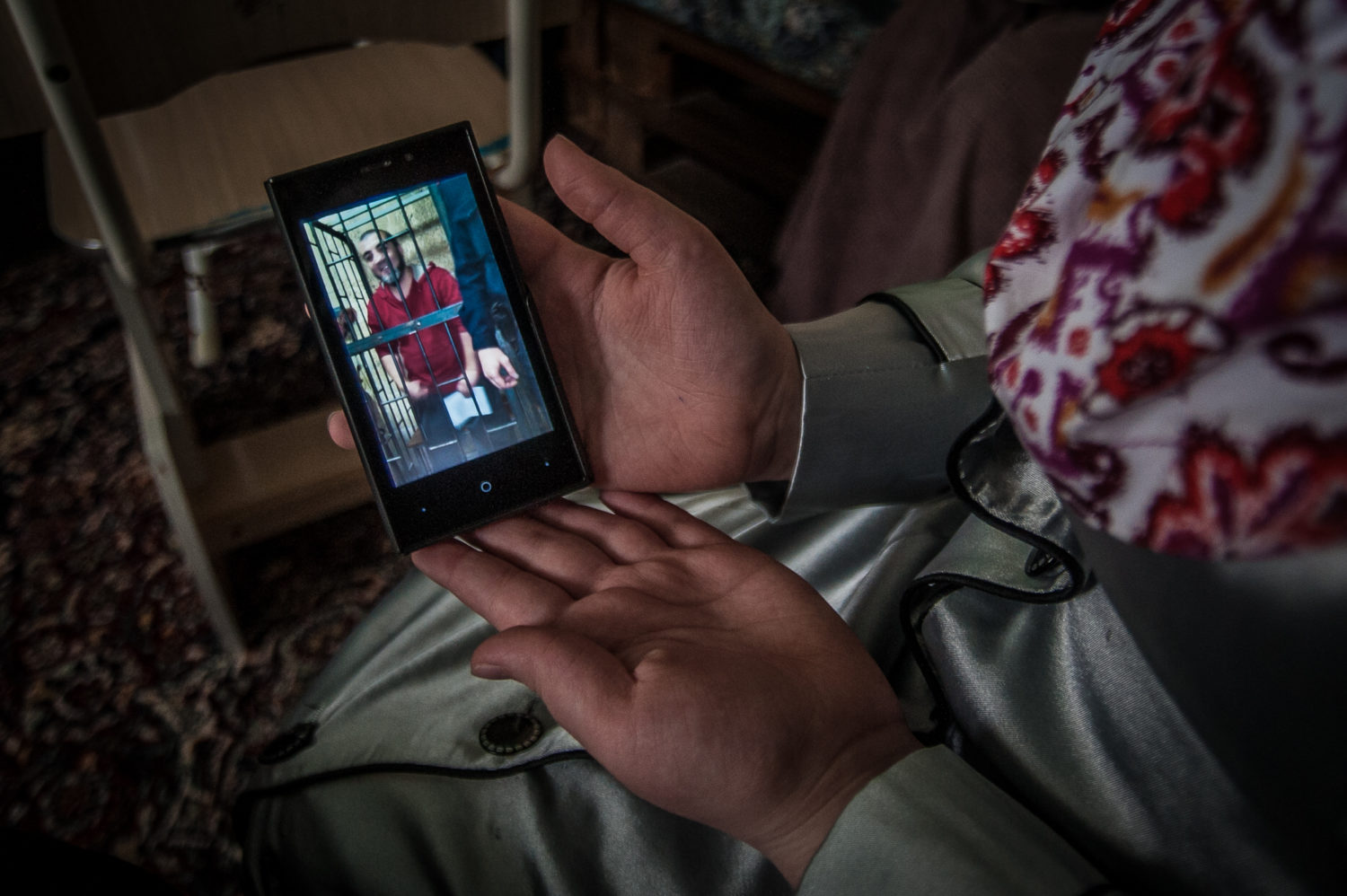
The Crimea. On the Opposite Side of Freedom
Two weeks ago in Crimea, the officers of the Federal Security Service of Russia made the most massive searches and arrests of the Crimean Tatars since the annexation. Alina Smutko, the photo journalist of Radio Svoboda, who had been working in the occupied peninsula since 2016 and was forbidden to enter Crimea and Russia for the period of ten years in winter 2019, collected the photo story out of the photographs in her archive. It is about the life of families of the arrested activists.
“At the end of 2016, I started taking photographs of the spontaneous peaceful protests held next to the courts to support the prisoners. The first family whose photos I took was the family of Ervin Ibrahimov, the activist who had disappeared. Then I met the families of the political prisoners. These photographs show the life of the relatives of the arrested and activists of the Crimean Solidarity movement, the ordinary Crimeans who have sacrificed their own welfare and peace in order to help a neighbour, a colleague, a coreligionist or a stranger.
In the morning on 27 March this year, officers of the Federal Security Service of the Russian Federation broke into and searched 27 houses in the areas which are densely inhabited by the Crimean Tatars in the vicinity of Simferopol: Kamianka, Strohonivka, Aikavan and Bilohirsk District. Broken doors, total mess inside and terrified families. That was how they looked for the evidence of the Crimean Tatars’ affiliation with Hizb ut-Tahrir al-Islami, the organisation banned in Russia. It is legal in Ukraine and in most world countries.
Prison trucks, armed men with hidden faces, blocked roads and checkpoints at the entrance to the villages: 20 Crimean Tatars were detained starting from 4 a.m. Next morning, it turned out that three other people were detained. One of those who disappeared that morning, Edem Yaiachykov, still has not been found.
Most of the arrested are activists from the Crimean Solidarity. The organisation was created on the peninsula after the first arrests in the “case of Hizb ut-Tahrir”. At the time, thirty-one people have been arrested in total. The Crimean Muslims have joined their efforts to help the families of their imprisoned compatriots: they came to the court hearings, found lawyers, brought food to the pre-trial detention centre, took care of 167 children, who turned out to be sort of half orphans. Currently the Crimean Solidarity is almost the only source of information on what is really happening on the annexed peninsula, and its members have been prosecuted, detained and fined. Fifty-four Crimean Muslims, who might be sentenced to five to twenty years or life imprisonment in Russia, are currently behind bars. Another person has disappeared.
The less we speak about the prisoners in Crimea, the fewer chances they have for an exchange or a more lenient punishment; they can simply be beaten to death somewhere in the cell. And tomorrow there will be elections, road accidents or the Eurovision, with no one to remember the Crimeans who have just been imprisoned. I know some of the arrested activists and their wives personally: we worked as colleagues near court buildings, spoke like friends over a cup of tea, so I find it very important to collect the pictures of their freedom I have, piece by piece.”
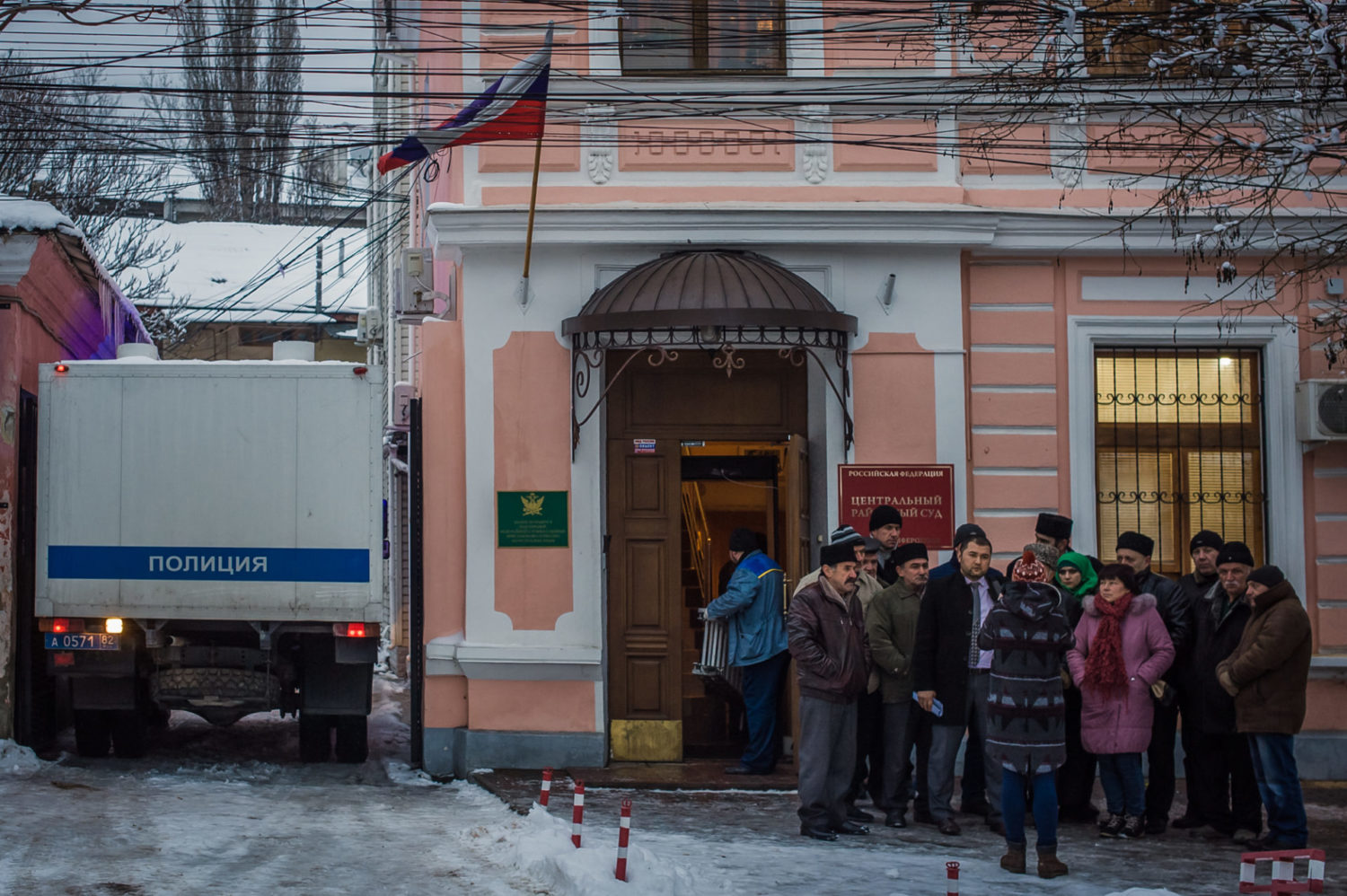
Attorney Edem Semedliaiev and the relatives and friends of those who have been detained in “26 February case” make a video address following another hearing near the Tsentralnyi District Court of Simferopol. That is how the attorneys disseminate information on the events in Crimea in social media since the local mass media absolutely ignore court proceedings involving Crimean activists.
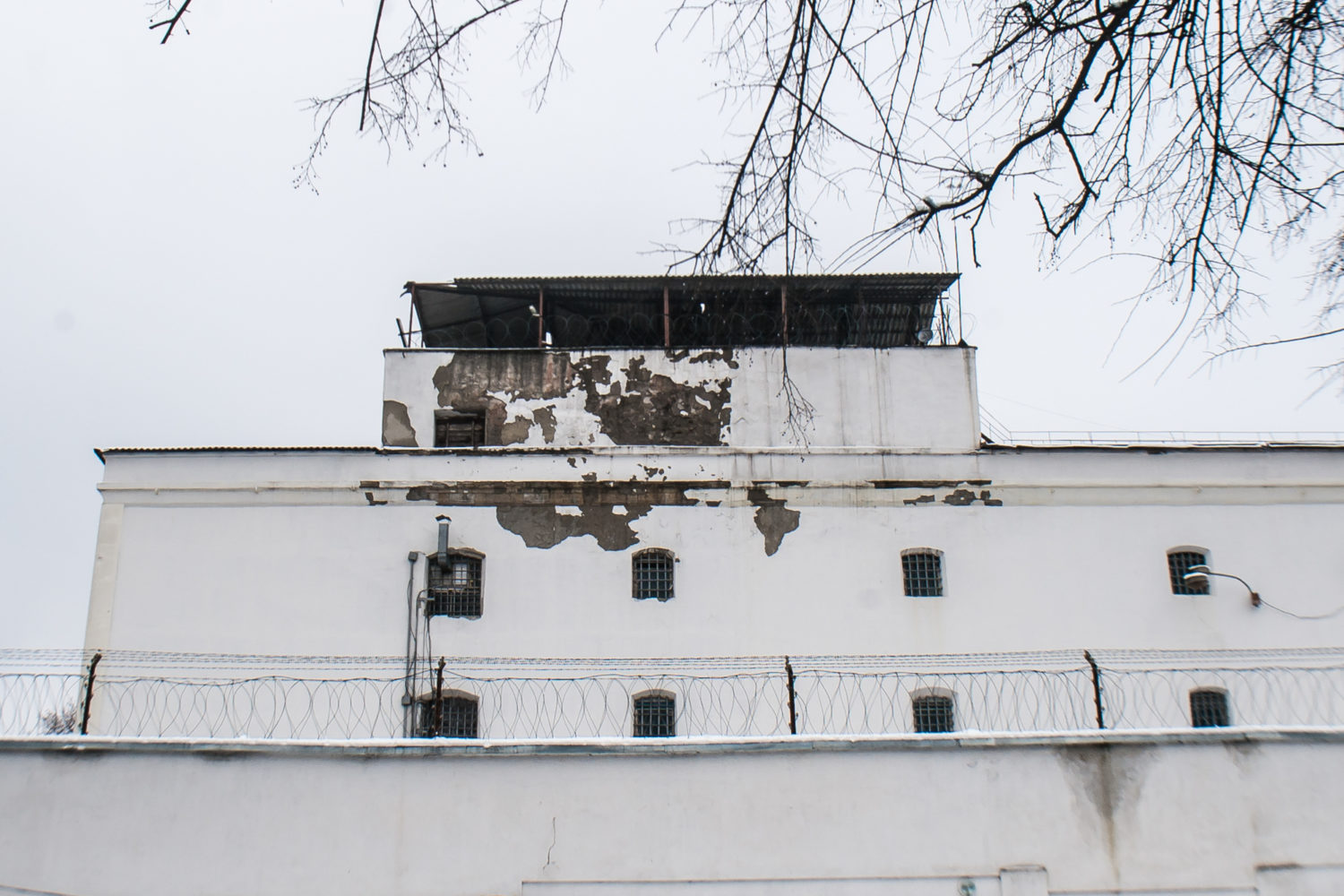
Pre-trial detention centre in Simferopol where those who have been arrested in the “case of Hizb ut-Tahrir” and other political cases are kept. According to the human rights defenders, the facility is critically overcrowded and has no adequate conditions for people kept there.
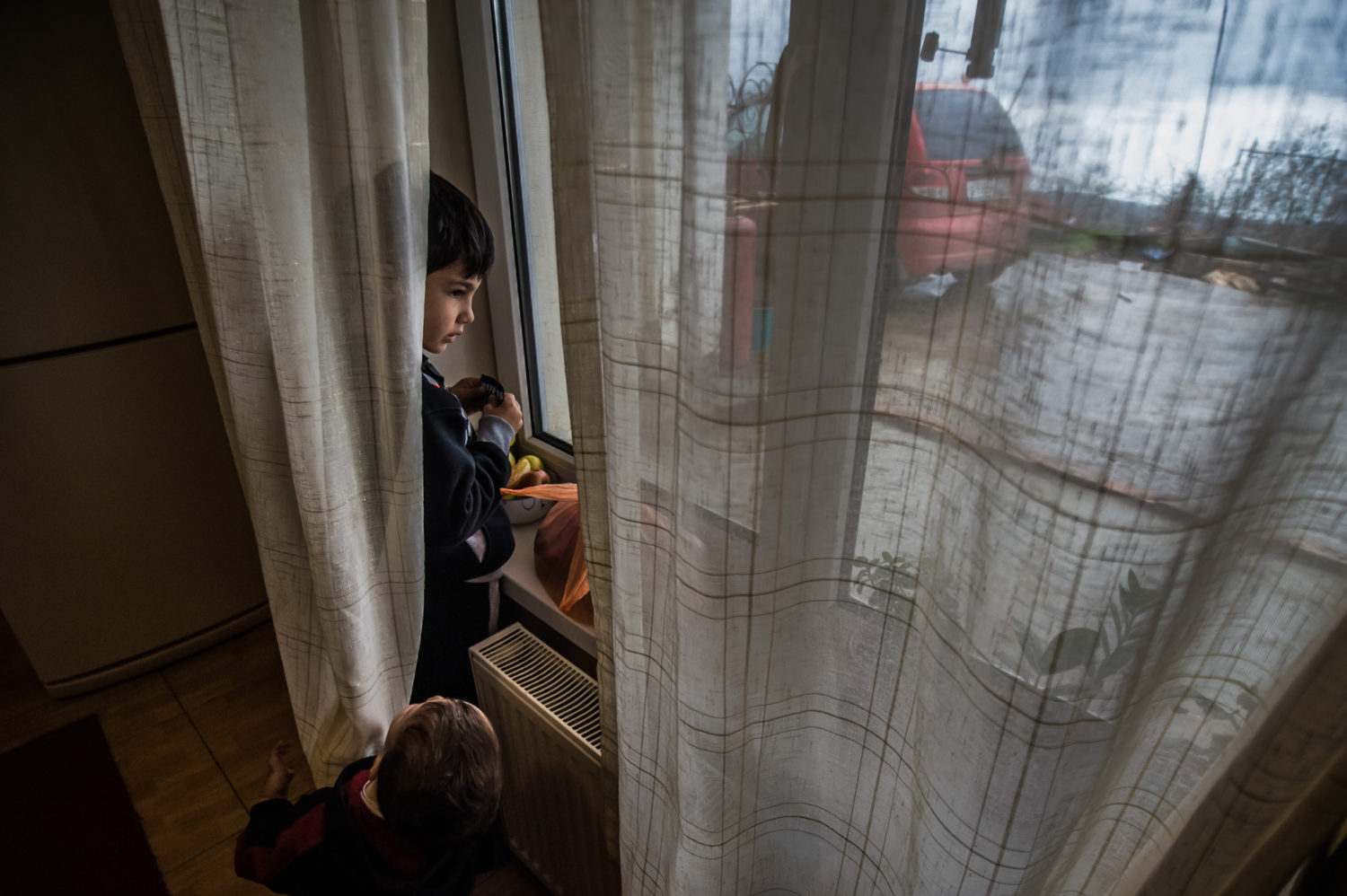
Nephews of Refat Alimov, the Crimean Tatar arrested in Yalta in the “case of Hizb ut-Tahrir”, in his house in Krasnokamianka near Yalta. Alimov and his fellow villager Arsen Dzhepparov were detained in spring of 2016 when they had refused to bear testimony against the others involved in the case.
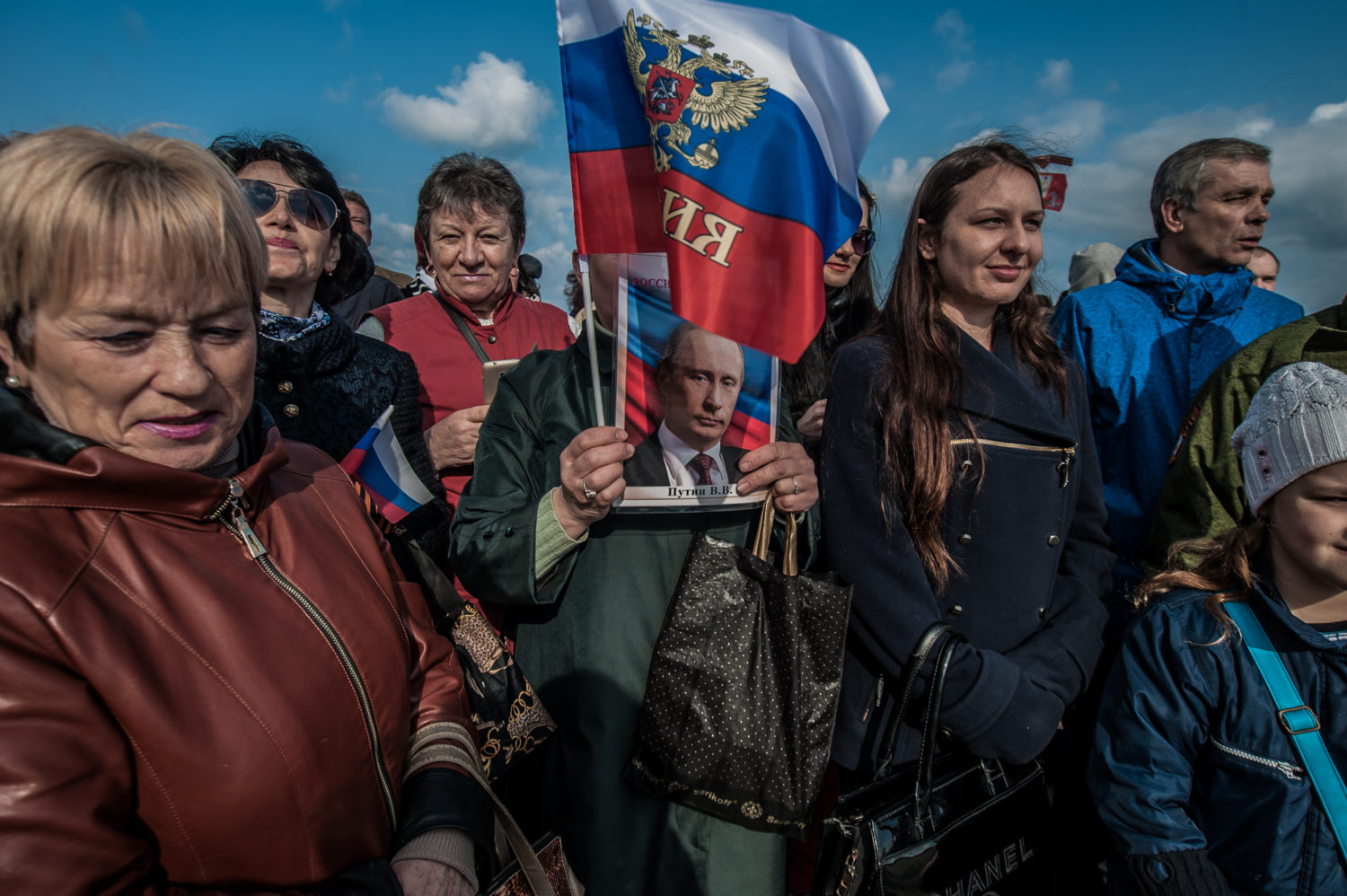
The woman holds a photograph of President of Russia Vladimir Putin at the celebration of the third anniversary of the “Crimea-wide referendum” in Sevastopol.
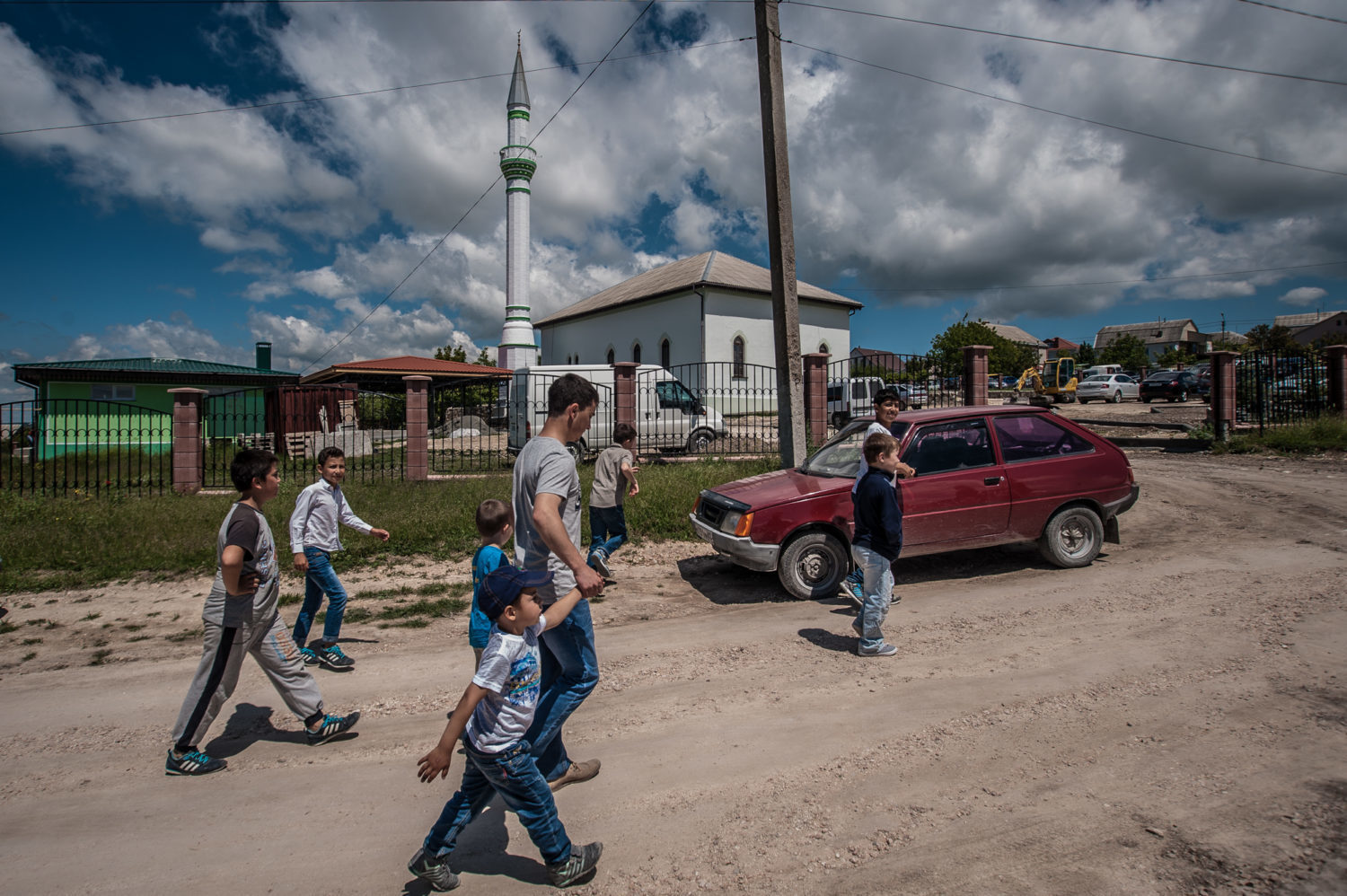
Diliaver Memetov, the son of Remzi Memetov from Bakhchysarai arrested in May 2016, takes the children of the other political prisoners to Jumu’ah, the Friday prayer, to the mosque in Bakhchysarai. The Muslims believe that a man must attend the Friday prayer to ask for mercy for his family. Before the arrest, the boys had come to this mosque together with their parents.
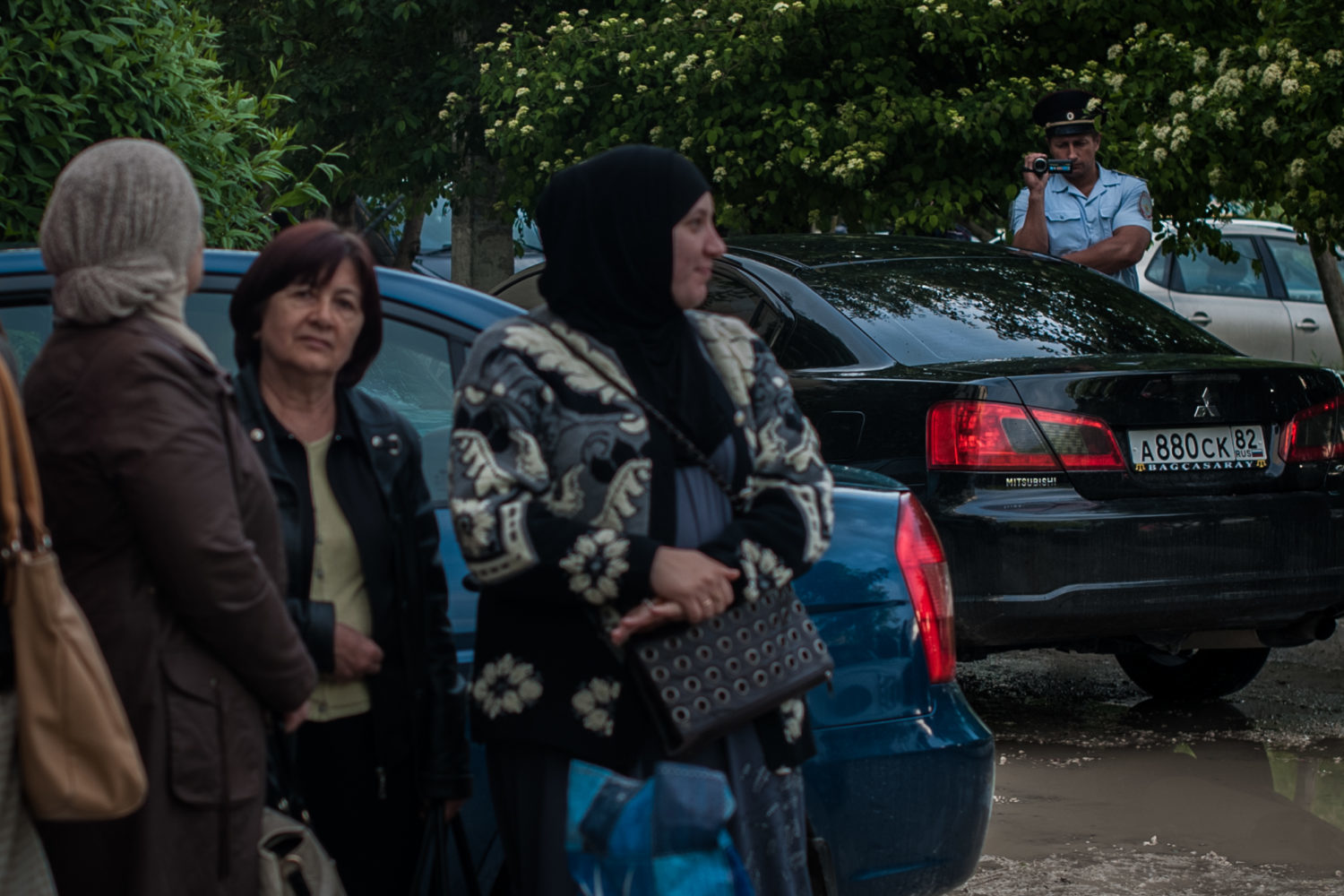
The policeman watches the participants of the joint prayer dedicated to Ervin Ibrahimov, the missing Crimean Tatar activist, near his house in Bakhchysarai. Several Crimean Muslims, who have come to support the Ibrahimovs, are surrounded by the law enforcement officers. Ervin’s relatives believe that the boy has been kidnapped by the security officers and have the evidence to prove that.
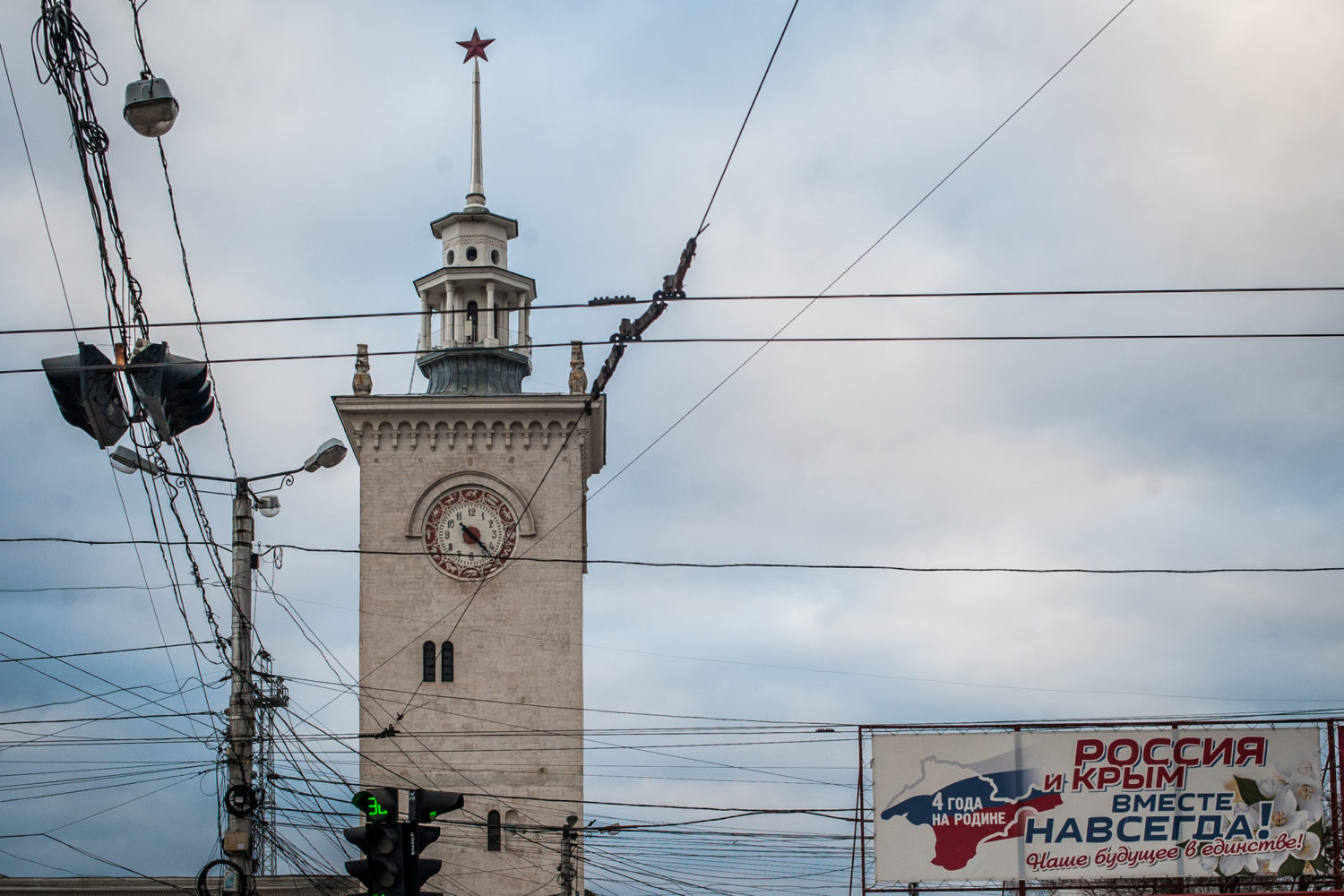
Simferopol railway station in January 2019.
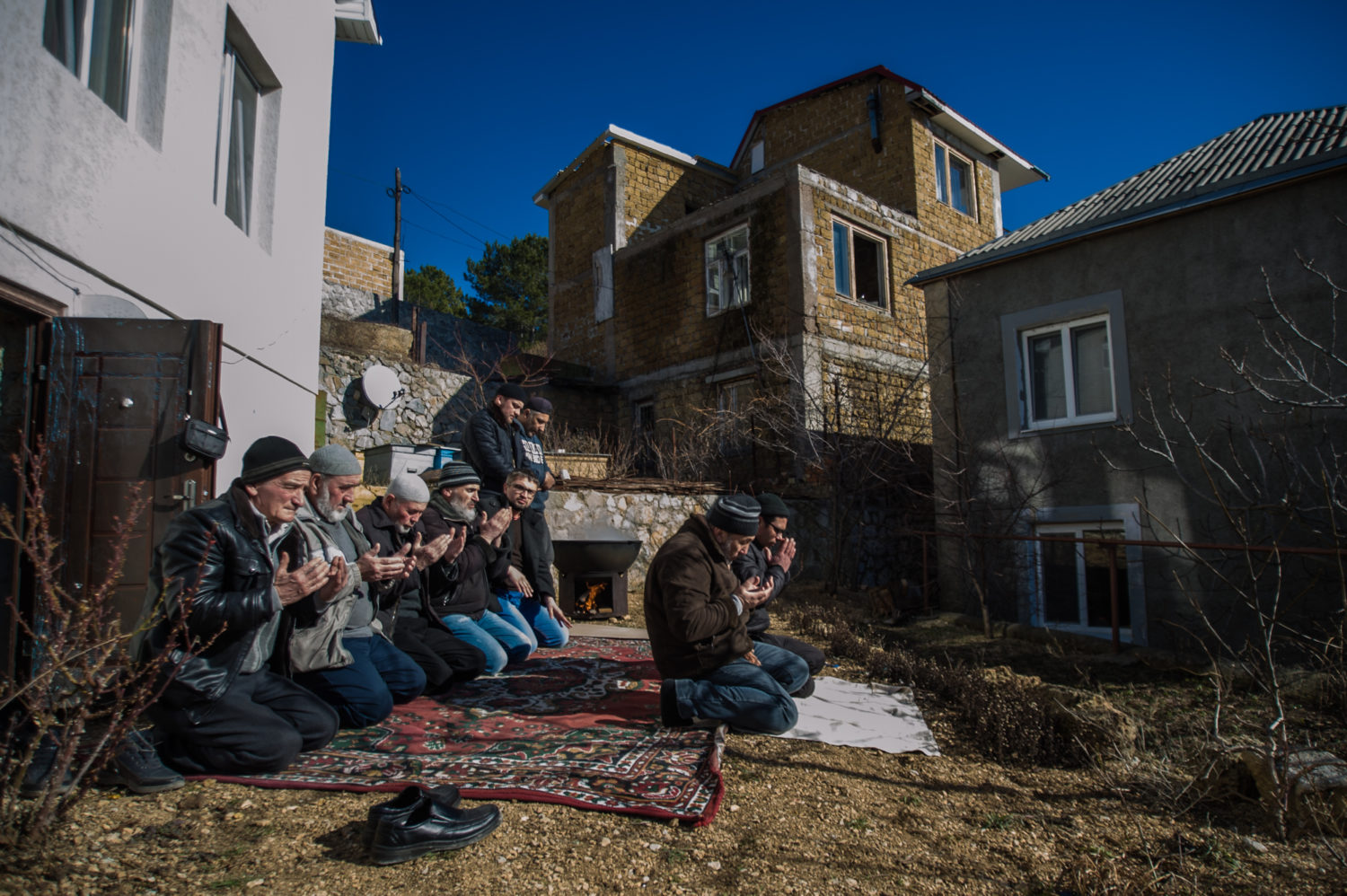
The friends and relatives of Emir-Usein Kuku, the Crimean political prisoner, perform Namaz, the daily obligatory prayer, in his house in Koreiz near Yalta. It is the anniversary of his arrest in February 2017. The relatives of the Crimean political prisoners get together at such anniversaries to say the prayer and ask Allah to bring the captives home as soon as possible.

The audience at the celebration of the Victory Day watch the parade at Admirala Nakhimova Square in Sevastopol, 2017.
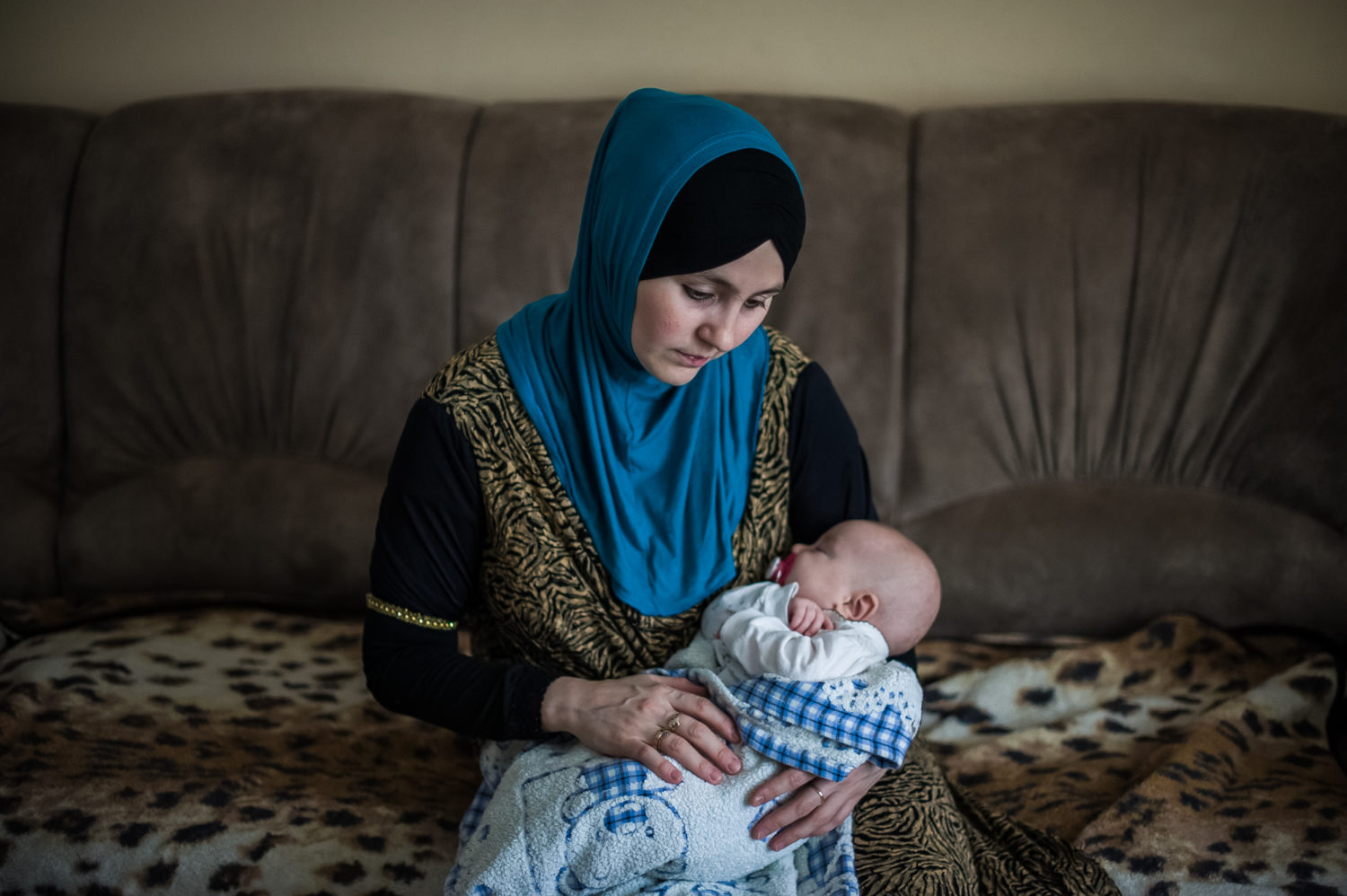
Liana Bielalova, wife of Crimean Tatar Emil Dzhemadenov, in her house in Kamianka near Simferopol, holds her six-month-old daughter Asiia. Dzhemadenov is one of five defendants in the “case of Hizb ut-Tahrir” in Simferopol, who are accused of “membership in the terrorist organisation”. Asiia was born after her father had been arrested. The spouses also have two sons, Yusuf and Yunus, who were five and three years old then.
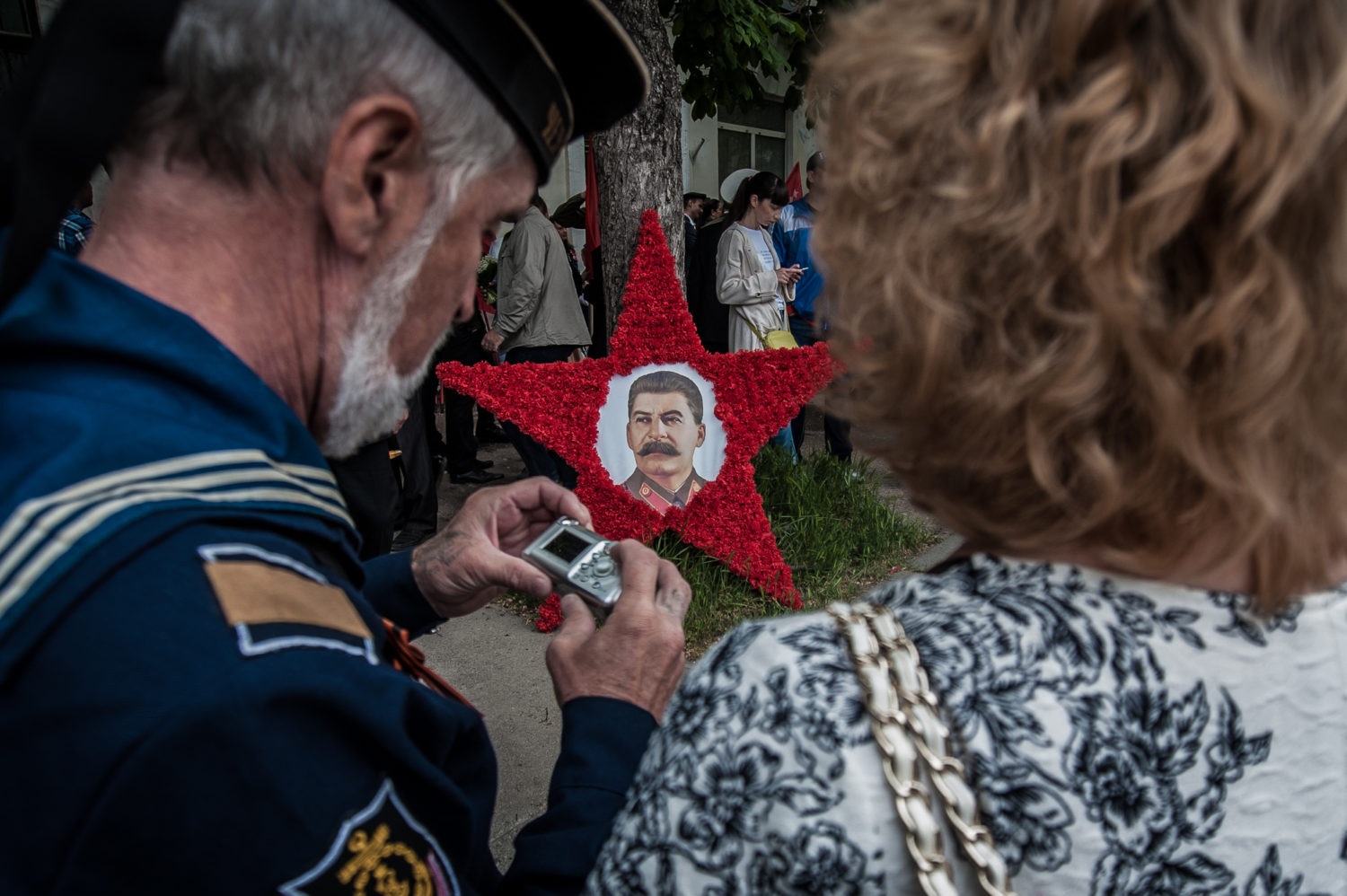
The audience of the parade on the Victory Day take pictures of the exhibit: the red star with Joseph Stalin’s portrait not far from the city centre in Sevastopol.
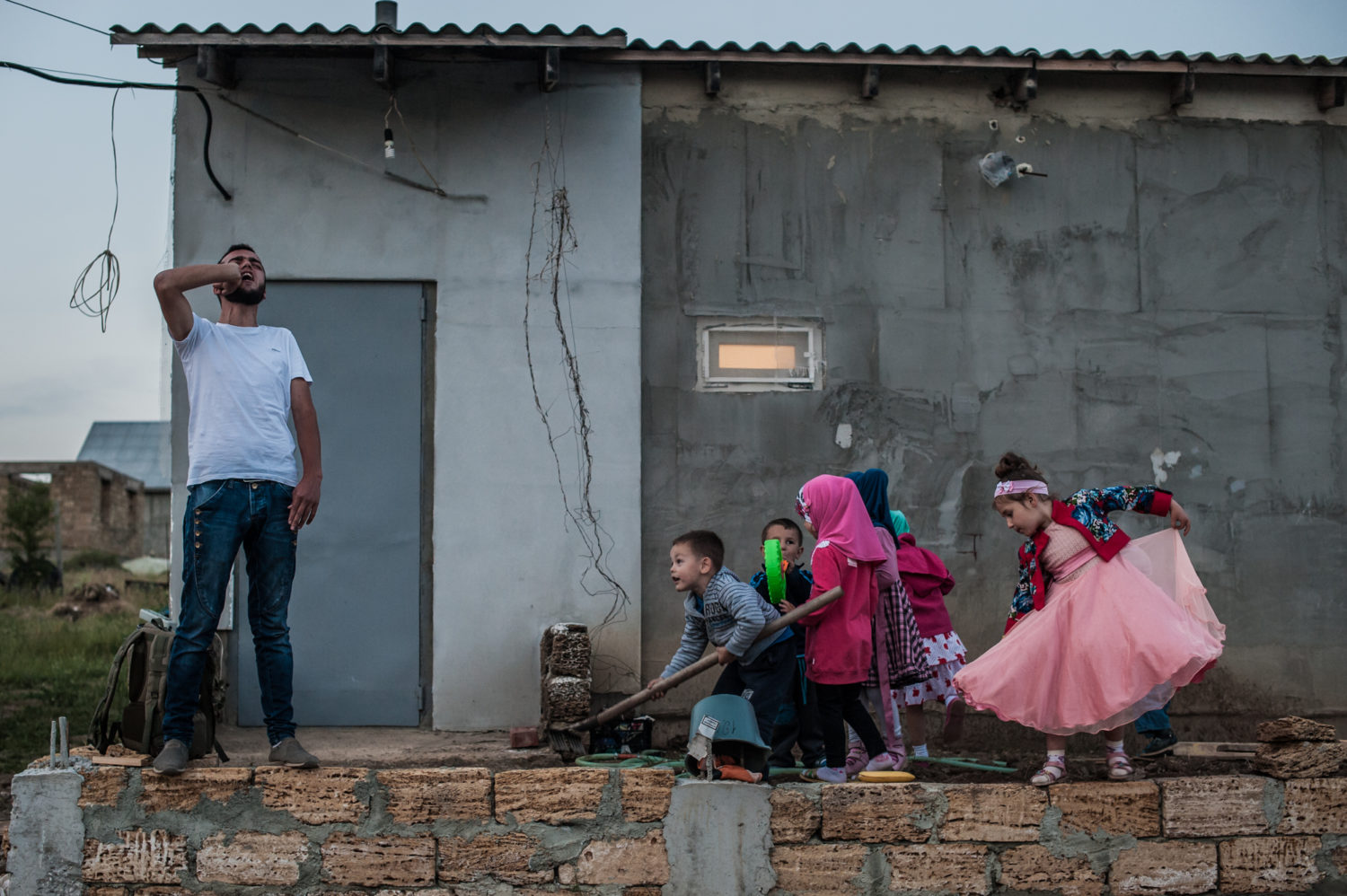
Children listen to the azan (call for the prayer) by the local muezzin before the iftar (the evening meal with which Muslims end their daily Ramadan fast at sunset) in the Abdullaievs’ house in Strohonivka near Simferopol. Uzeir and Teimur Abdullaiev, Tae Kwon Do coaches well known on the peninsula, are defendants in the “case of Hizb ut-Tahrir” in Simferopol.
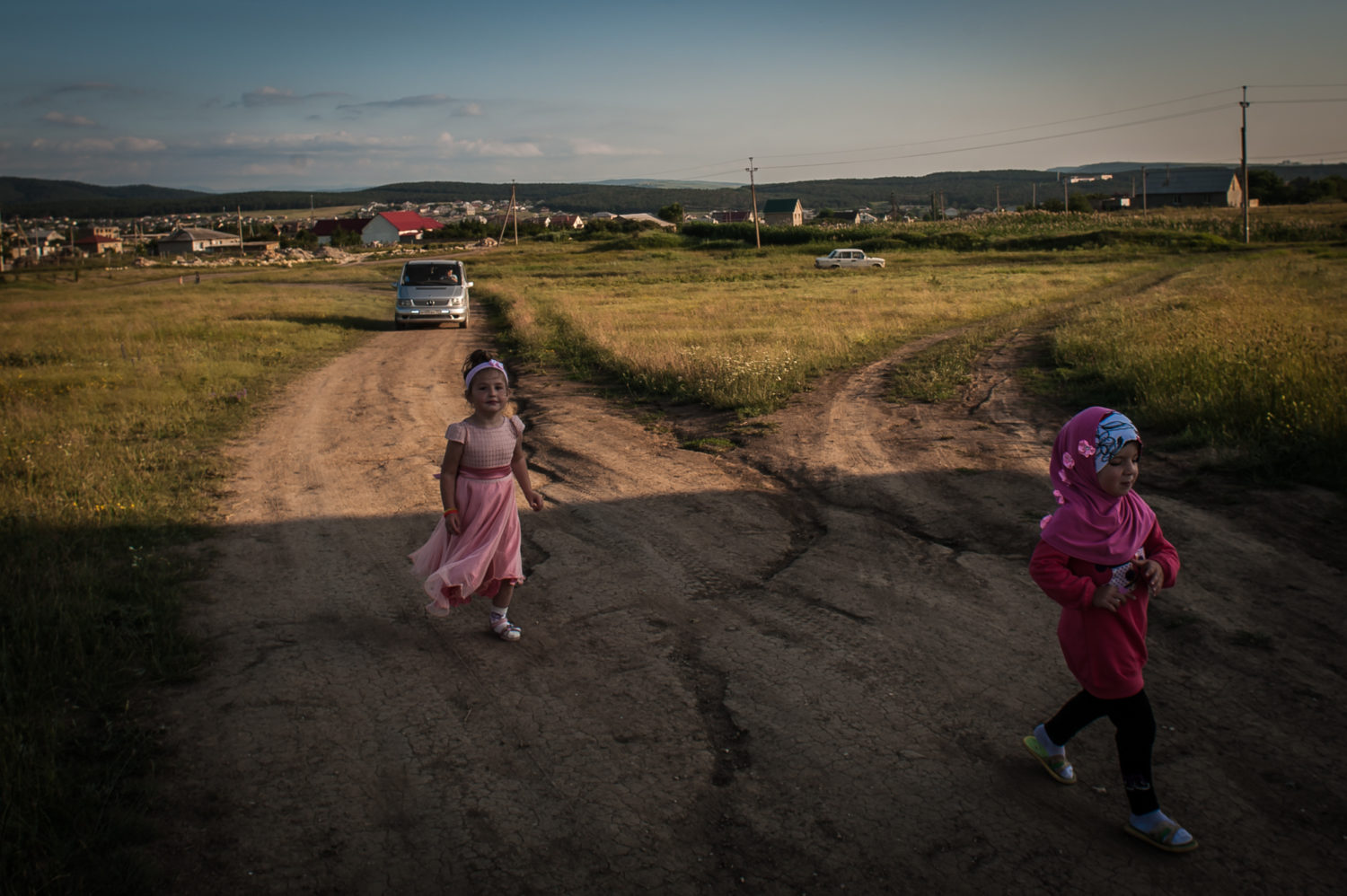
Five-year-old Raikhan, daughter of Teimur Abdullaiev, the defendant in the “case of Hizb ut-Tahrir” in Simferopol, runs together with her friend before the iftar organised by the wives of the political prisoners in Strohonivka. Teimur Abdullaiev is accused of “organisation of the terrorist centre of Hizb ut-Tahrir” in Simferopol, and he might be sentenced to twenty years or life imprisonment.

Muslim Aliiev, the “organiser of the terrorist group in Yalta” in the “case of Hizb ut-Tahrir”, holds his daughter Hulsum in the photo from the family archive. Now she is one of the activists of the Crimean Solidarity: the security officers are putting pressure on her and have instituted criminal proceedings based on the “repost article”. This article has already been decriminalized. Hulsum has left the peninsula in the fear of arrest.
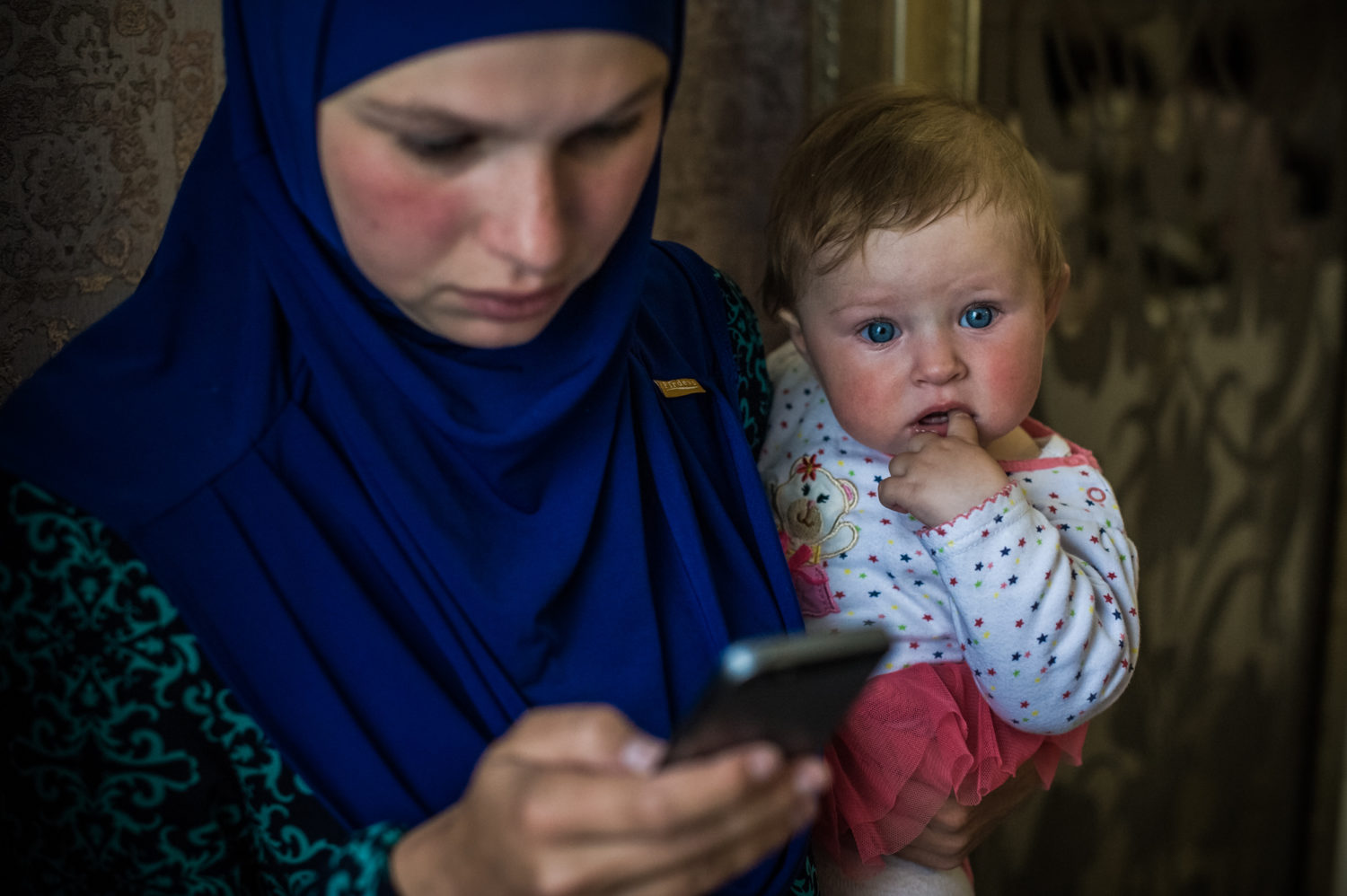
Anna Bohachova, wife of Vadym Siruk, the defendant in the “case of Hizb ut-Tahrir” in Yalta, holds her daughter Khanif during one of the meetings of the Crimean Solidarity in Old Crimea. The girl was born after her father had been arrested. Vadym Siruk is a Ukrainian, who converted to Islam several years ago.
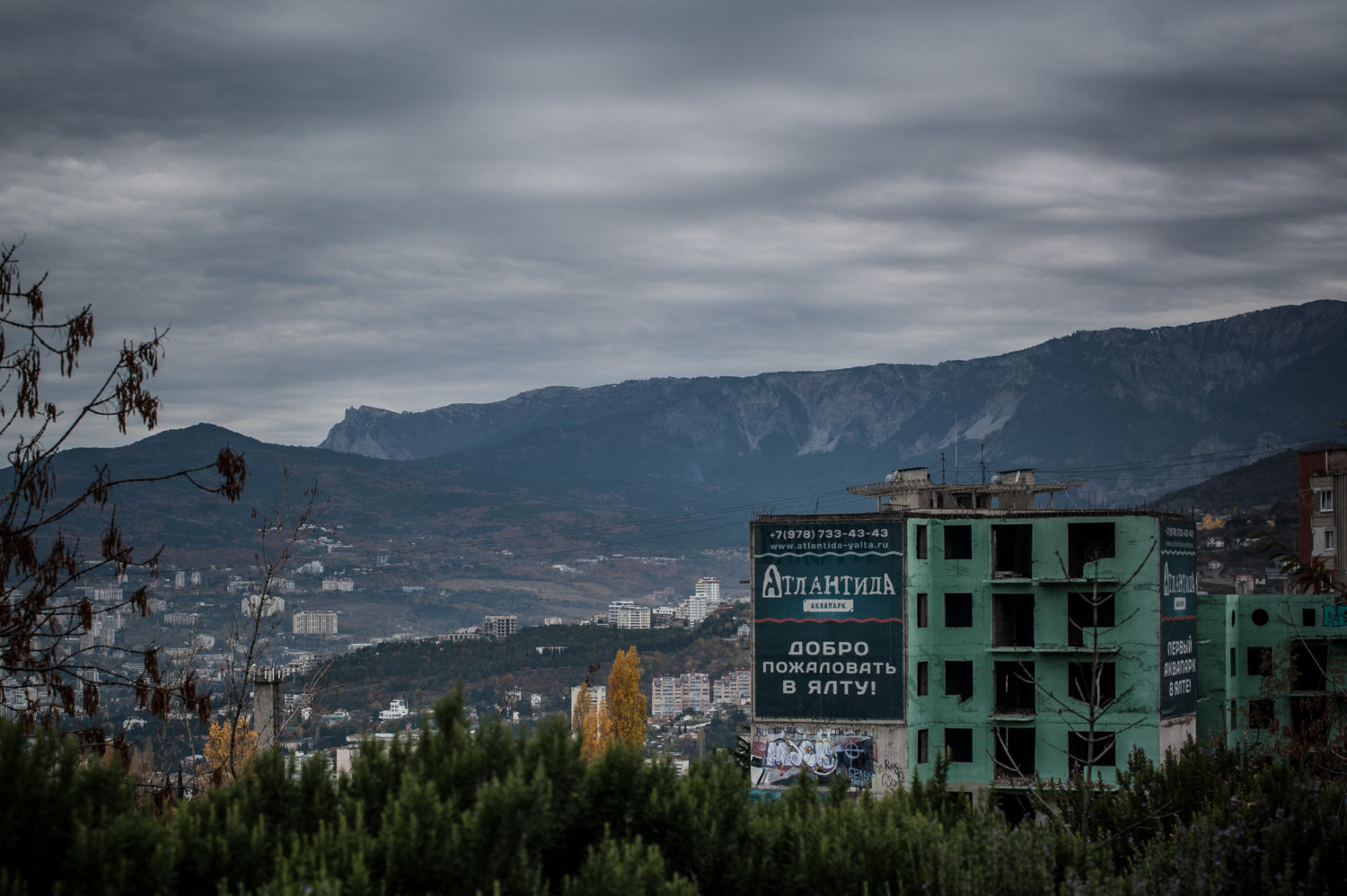
Yalta, summer 2017.
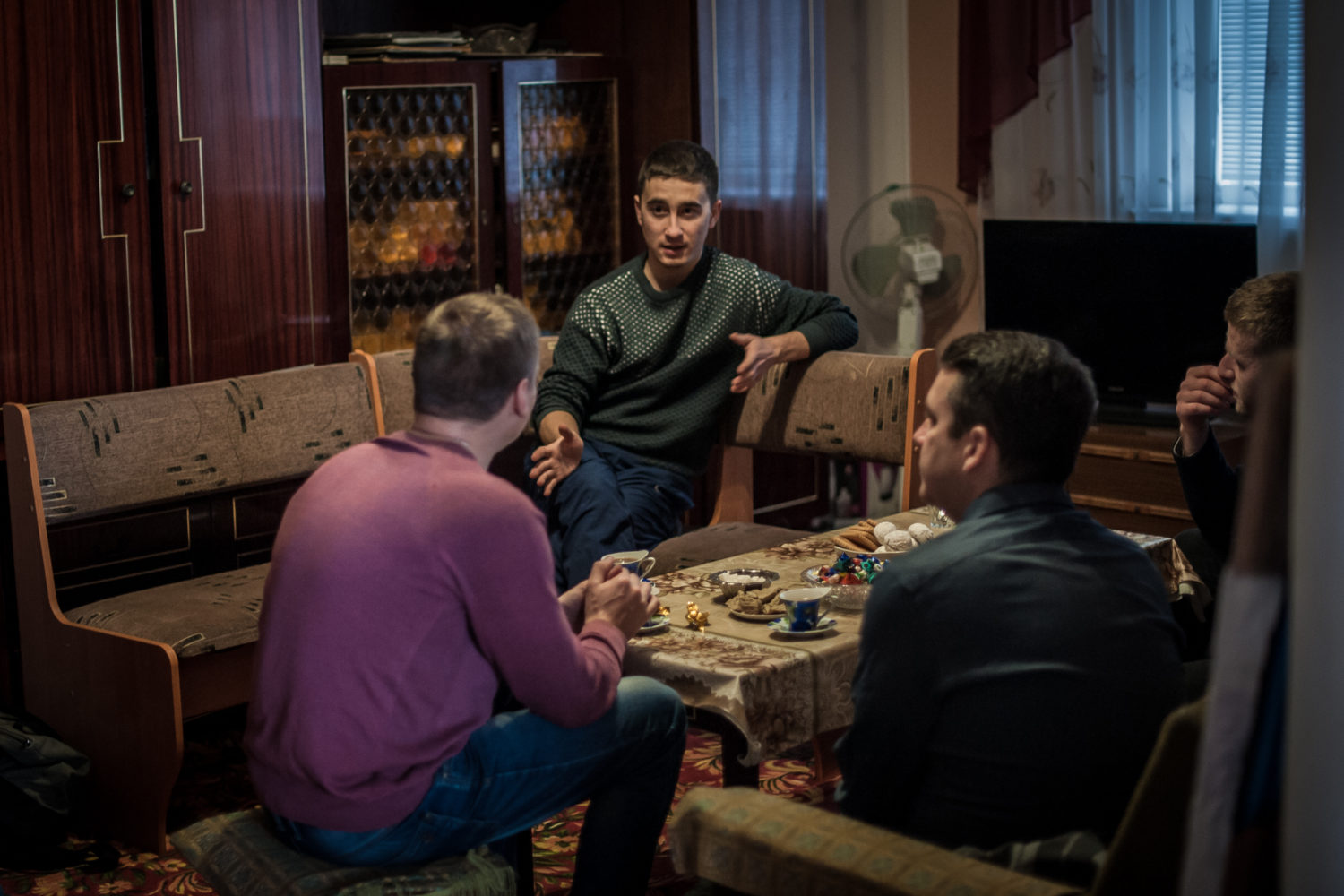
Diliaver Memetov, one of the co-founders of the Crimean Solidarity movement and son of political prisoner Remzi Memetov, tells foreign journalists in his house about the searches and detentions in Crimea before the fifth anniversary of the “referendum”. His father has been recently sentenced to nine years of imprisonment.
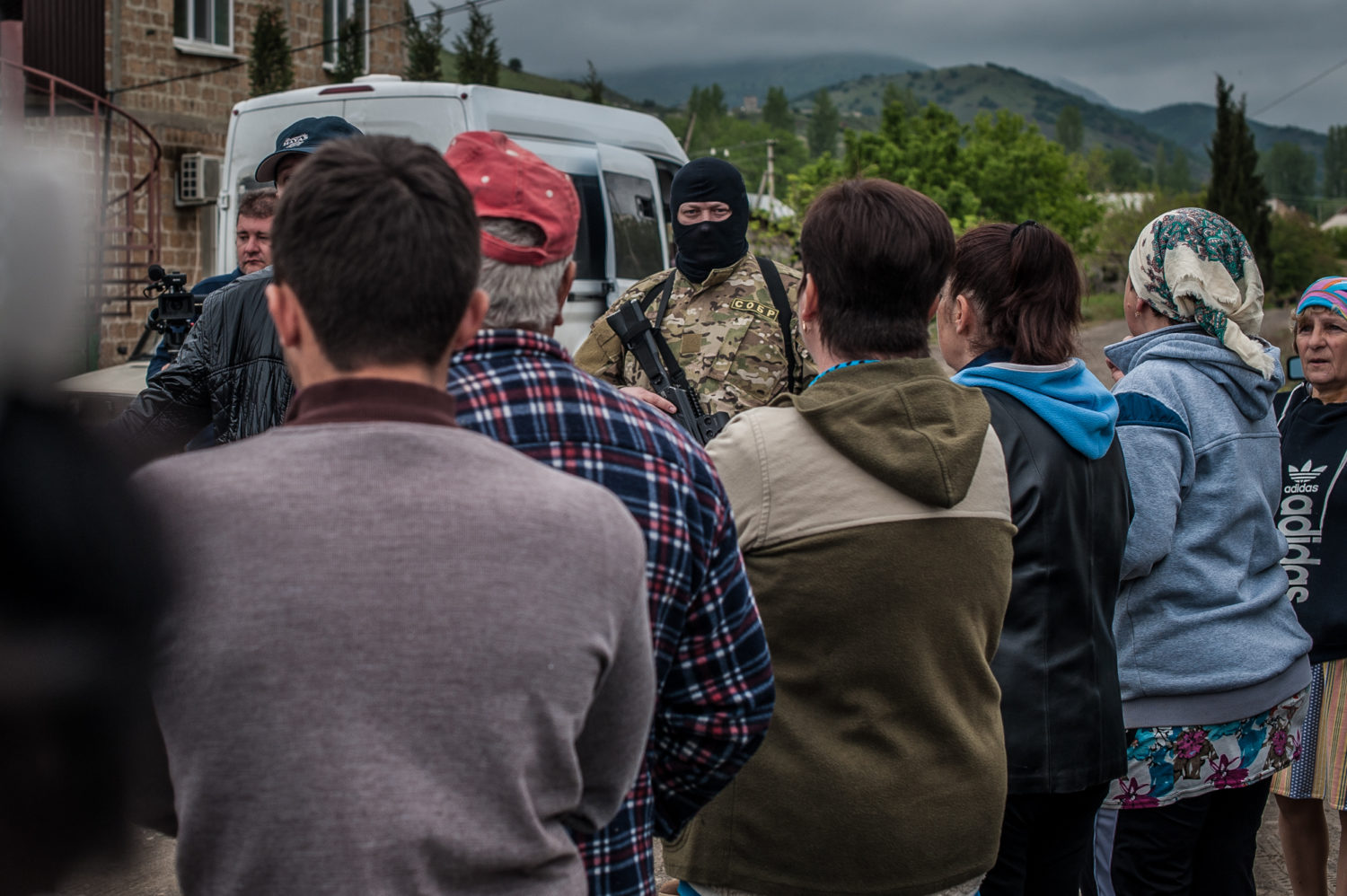
Search in the house of Crimean Tatar Yusuf Toroz in Morske (Kapsikhor) near Sudak in 2017. Yusuf and his son Server were accused of keeping weapons and drugs although nothing was found during the investigative actions. After the search, the boy was taken away by the security officers in the unknown direction. The Crimean activists found out where he was only in the evening: the special group sent the boy into Krasnodar Territory in Russia.

The daughter of Tofik Abdulhaziiev, the activist from the Crimean Solidarity movement, watches her father commenting on the search in his house in summer of 2018. Tofik has now been arrested together with 22 activists of the Crimean Solidarity.
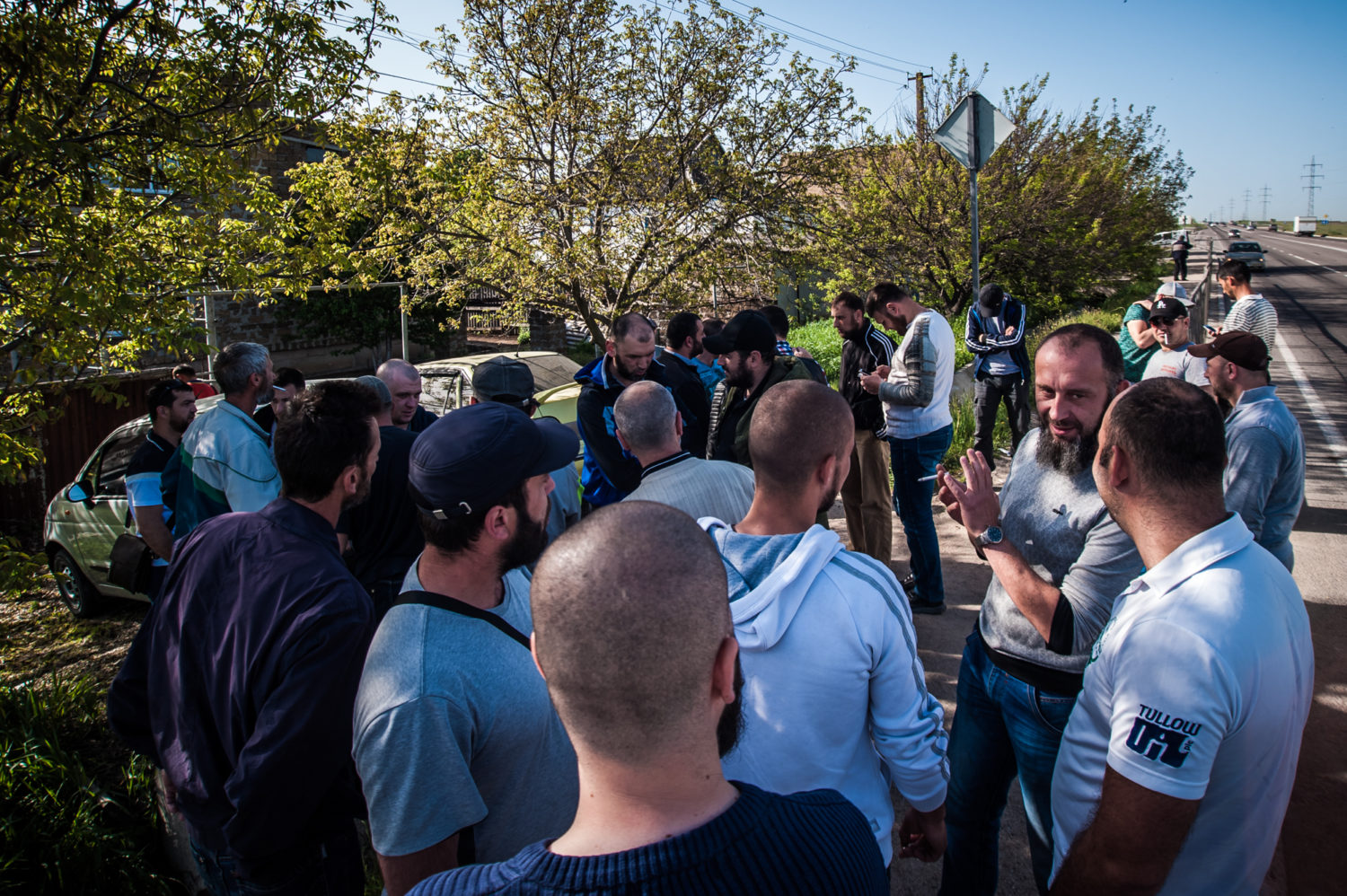
Riza Izietov, the activist from the Crimean Solidarity, has come to support the family whose house has been searched in May 2017. He has been recently detained in the “case of Hizb ut-Tahrir”.

Remzi Bekirov, one of the activists from the Crimean Solidarity, near the Supreme Court of Crimea after the hearing of the appeal in the case on his administrative arrest in April 2017 for “dissemination of extremist materials in social media”. On 28 March, he was detained in Rostov-on-Don in the new “case of Hizb ut-Tahrir”. According to the attorneys, Remzi and two other men who were detained with him were badly beaten and had all their money and personal belongings taken away.
*** In the first picture: Salsabil, daughter of Uzeir Abdullaiev, the defendant in the “case of Hizb ut-Tahrir” in Simferopol, shows her father’s photograph she had secretly taken in the court room. Uzeir and his brother Teimur, the wrestling coaches from Strohonivka near Simferopol, were arrested in autumn 2016.
[This publication was created with support of the Royal Norwegian Embassy in Ukraine. The views and opinions expressed in this publication are those of the authors and do not necessarily reflect the official position of the Norwegian government.]
Have read to the end! What's next?
Next is a small request.
Building media in Ukraine is not an easy task. It requires special experience, knowledge and special resources. Literary reportage is also one of the most expensive genres of journalism. That's why we need your support.
We have no investors or "friendly politicians" - we’ve always been independent. The only dependence we would like to have is dependence on educated and caring readers. We invite you to support us on Patreon, so we could create more valuable things with your help.
Reports130
More






